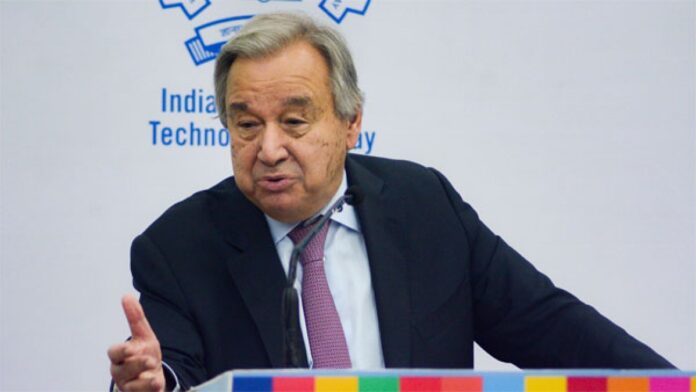Days after forces from the two nations battled in the Tawang region of Arunachal Pradesh, resulting in some soldiers on both sides suffering minor injuries, United Nations Secretary-General Antonio Guterres called for a de-escalation in tensions along the India-China border on Tuesday.
According to Defense Minister Rajnath Singh, on December 9, Chinese troops attempted to “unilaterally” alter the status quo along the Line of Actual Control (LAC) in the Yangtse region of Arunachal Pradesh’s Tawang sector, but were forced to retire by the Indian Army’s “strong and decisive” response.
When asked to comment on the matter, Stéphane Dujarric, the UN Secretary-Speaker, responded, “Yeah, we’ve seen these allegations.” We demand a de-escalation of the situation and the prevention of further escalation of the tensions there. The two sides have maintained open communication on boundary-related problems through diplomatic and military channels, according to Wang Wenbin, a spokesman for the Chinese Foreign Ministry, who was speaking to the media on Tuesday in Beijing.
The intense battle in the Galwan Valley in June 2020, which was the two sides’ most serious military conflict in decades, was the last significant combat encounter between the Indian and Chinese armies.
This is also the first significant incident at the border following Chinese President Xi Jinping’s historic third five-year term victory at the once every five years Congress of the country’s ruling Communist Party of China (CPC).
The collision on Friday happened amid 16 rounds of negotiations between the commanders of the two nations to end standoffs that have arisen at various sites since the eastern Ladakh border stalemate, which started in May 2020 after a bloody fight near Pangong Lake.
During the most recent round of negotiations, which took place in September, both parties decided to withdraw their forces from Patrolling Point 15 in the Gogra-Hot Springs region.
India has constantly insisted that stability along the LAC is crucial for the growth of bilateral relations in general.




















